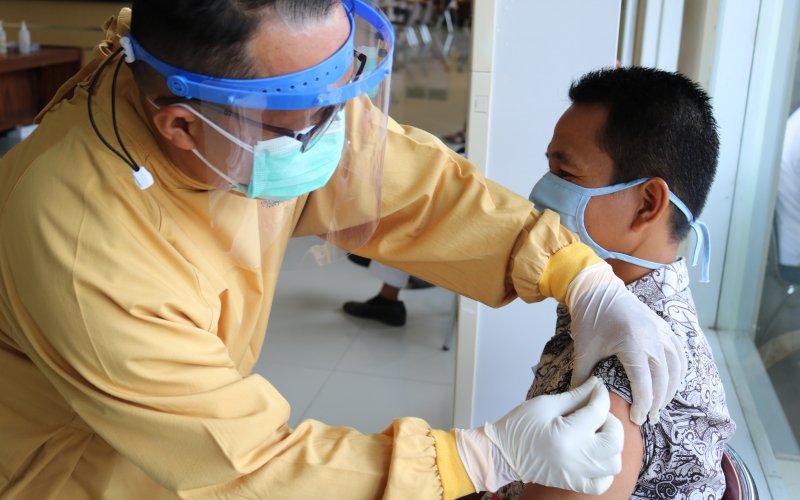Developing Vaccination Strategies to Prevent Worsening Minority Health Disparities

ALBANY, N.Y. (March 18, 2021) – Researchers at the University at Albany released a white paper outlining how states can prevent worsening COVID-19 minority health disparities by developing vaccination strategies intended to counteract longstanding skepticism in minority communities.
Led by Kate Strully, an associate professor of Sociology, the white paper focuses specifically on overcoming vaccine hesitancy in minority communities, the roots of that hesitancy in systemic racism, and how state and local health authorities can construct community-based vaccination campaigns that will build trust within communities of color.
The COVID-19 pandemic has delivered many sobering lessons to public health officials and governments across the globe, but among the most pressing has been the disproportionate impact that COVID-19 has had on Black, Hispanic and other minority communities. According to March 2021 fatality data, in New York City alone, 34 percent of COVID-19 fatalities have been among Hispanic individuals though they comprise just 29 percent of the overall population, while 28 percent of fatalities have been among Black individuals who comprise 22 percent of the population. These existing disparities mean minority communities hit hardest by the pandemic stand to gain the most from a safe and effective vaccine, the researchers said.
Beyond the logistical task of prioritizing, distributing and safely storing millions of doses of the vaccine, the researchers state that communities “must simultaneously devise a transparent plan to prevent the minority health disparities that defined the early stages of the pandemic from bleeding into the next phase.”
Vaccine hesitancy refers to delays in the acceptance or even outright refusal of vaccines. According to the researchers, hesitancy tends to be heightened with new vaccines and in the case of the COVID-19 vaccine has been heightened further by conflicting guidance from trusted federal public health agencies. While vaccine hesitancy is expressed by many demographic groups across the country and for various reasons, research shows it’s even more pronounced among minority groups – who are also more likely to experience the most devastating effects of COVID-19.
The researchers outline several recommendations for states to overcome vaccine hesitancy, such as establishing a task force specifically dedicated to vaccine equity, developing culturally appropriate information campaigns, communicating clearly about the vaccine-development process and transparently publicizing the goals of any vaccine policy. The white paper was previously circulated to policy makers in state government and as a result, President Havidán Rodríguez and Strully were asked to speak at a session of the NYS Vaccine Equity Task Force in February.
The white paper is intended to help state and local public health authorities across the United States devise equitable COVID-19 vaccine strategies. This work is a complement to the research being conducted at the University at Albany in support of Gov. Andrew Cuomo’s directive to study minority health disparities in COVID-19 outcomes in New York. More information about that project is available on the website.




